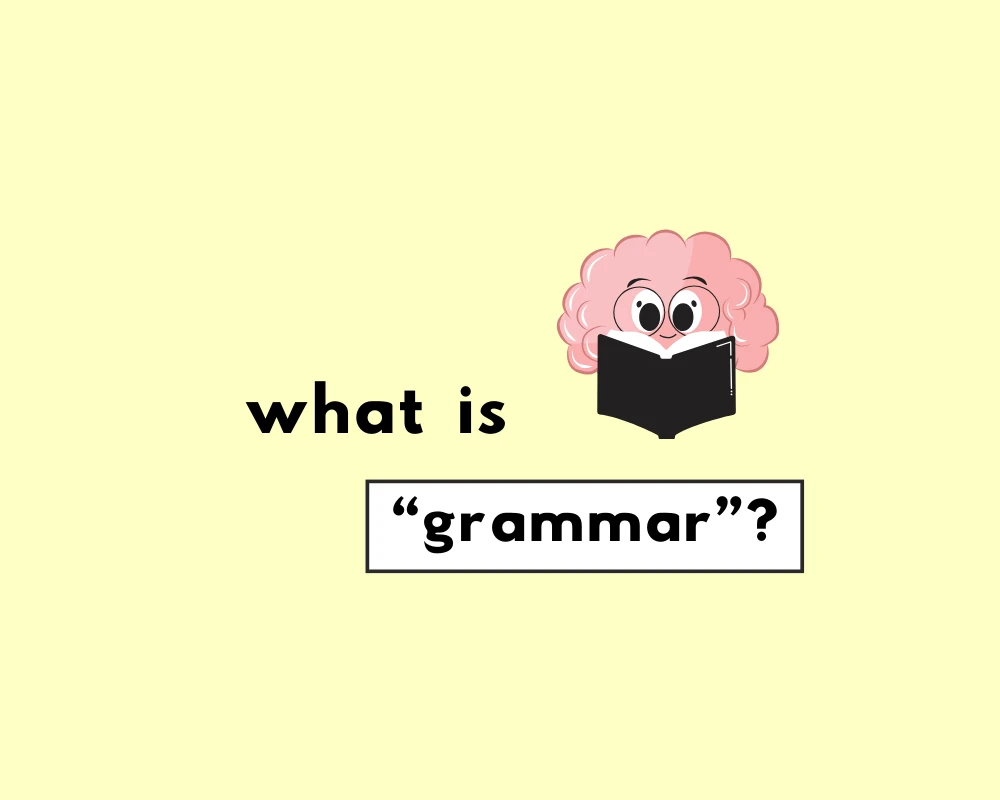What is grammar?
The internet will tell you that grammar is “a particular analysis of the system and structure of language or of a specific language”. Also,
The sun shines.
She reads a book.
Runs fast.
The car beautiful.
The whole system and structure of a language or of languages in general, usually taken as consisting of syntax and morphology (including inflections) and sometimes also phonology and semantics.
If these explanations leave you wanting, then let us try and come up with our own explanation.
A Grammarflex guide
An instructive tip is to always consider which part of speech (I explain this term later on) the word you’re looking to understand belongs to. In this case, and to take the question “what is grammar” literally, the word “grammar” is a noun; nouns name people, places, things or ideas (they are a part of grammar and speech . . . and writing).
Obviously, it’s not a person, place or thing, so we can infer that it’s a concept, or at least is abstract or theoretical. And so, it’s an abstract noun and concept, that lay out the rules by which any language works, and its recognizable structure.
When we understand the grammar of a language and how to apply it, we are to that extent able to write, read and speak proficiently in said language. While this is no small feat; (almost all languages have a breadth and depth to them that proficiency is difficult to achieve), the benefits of truly knowing a language are worth the effort it takes to get to know it.
Why does grammar matter in writing?
Any language is based on grammar, which are the rules that organize and structure language so that it can make sense and is intelligible in communication (in writing or speech).
In other words, to communicate effectively, whether in writing or conversation, we should have a decent grasp of how the language works and how to apply it. This is also known as syntax, which is “the arrangement of words and phrases to create well-formed sentences in a language”.
Basic grammar rules (in English)
The fundamentals in English comprises of the main parts of speech (listed below), along with the rules of syntax and punctuation.
- Basics of English Grammar: Parts of Speech
- Nouns
- Verbs
- Adjectives
- Conjunctions
- Adverbs
- Pronouns
- Preposition
- Interjections
“Grammar,” think of it as the “S&S” – the **System and Structure** of language. The examples illustrate that sentences require this S&S to be complete (subject, verb).
Punctuation in English
- Commas
- Colons
- Semicolons
- Hyphens
- Types of sentences
How to improve your grammar
The best way to improve (or for anyone to improve their grammar) is to practice. Unfortunately, this is not new or novel advice, but it’s the tried and true method of learning that endures.
Keep in mind: what practicing grammar looks like and involves will vary from person to person, depending on the skill level. Still, the answer is more or less the same: take the time to learn and understand grammar, how it works, and all the rest will come smoothly.
Reading our guides on the main parts of speech (all 8 of them), verb tenses and noun forms, how to use proper punctuation and being able to distinguish between misused words are all part of what it means to be able to write well.
The knowledge is available and attainable for anyone; the question is whether you take the time to stretch these skills to the point of proficiency. Here’s our personalized reading list to get you going on the ‘write‘ foot.
Origin of the word “grammar”
Its origins are from the Greek word gramma, which means “letters”.
Sources
- High School English and Composition, P.C. Wren
- The Elements of Style, Strunk & White
Work Sheet
According to the blog post, what is a key description of grammar?
Why does grammar matter in writing and communication?
What term is defined in the post as “the arrangement of words and phrases to create well-formed sentences”?
Understanding the grammar of a language allows you to do what proficiently?
The blog post identifies “grammar” as what type of noun and concept?
According to the examples in the post, the sentence “Runs fast” is incorrect because it is missing a ____.
According to the examples in the post, the sentence “The car beautiful” is incorrect because it is missing a ____.
The post uses the example “The sun shines” to illustrate a simple ______ structure.
The post uses the example “She reads a book” to illustrate a simple ______ structure.
The blog post suggests thinking of grammar as the “S&S,” which stands for ______ and ______.
Frequently Asked Questions
What is grammar?
+
Why does grammar matter?
+
What makes a simple sentence correct?
+
What is syntax?
+
What are basics of English grammar?
+
Yash, D. "What is Grammar? (Basic Rules of Grammar)." Grammarflex, Jun 3, 2025, https://www.grammarflex.com/what-is-grammar-basic-rules-of-grammar/.










